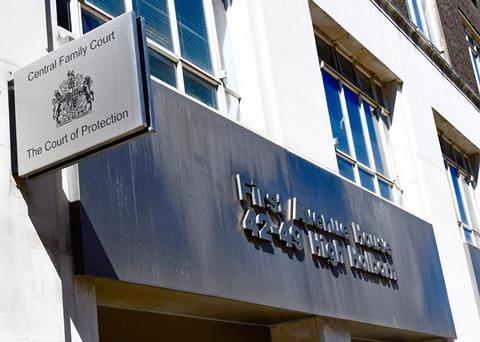The family court reporting pilot will be extended to 16 courts across the country in what the judiciary described as a ‘huge step’ for transparency in the family justice system.
The transparency implementation group reporting pilot, which started at the family courts in Leeds, Cardiff and Carlisle at the end of January 2023, will be rolled out to a number of courts across the country including Liverpool, Dorset and Milton Keynes on 29 January.
The pilot introduces the presumption that accredited media and legal bloggers may report on what they see and hear during family court cases while adhering to strict rules of anonymity.

Judges in the courts under the pilot will make transparency orders which set out what can and cannot be reported.
The judiciary said the ability to report 'is being piloted to make sure it can be done safely and with minimum disruption to those involved in the cases, and the courts’.
Sir Andrew McFarlane, Family Division president, said the roll-out followed a ‘pioneering year of reporting from Leeds, Cardiff and Carlisle’.
He added: ‘Extending the reporting pilot to family courts across the country is a huge step in the judiciary’s ongoing work to increase transparency and improve public confidence and understanding of the family justice system. After a pioneering year of reporting from Leeds, Cardiff and Carlisle, journalists and legal bloggers will be allowed to report from a further sixteen courts.
‘We hope that in extending the pilot further we can continue to understand the impact that family court reporting has.’
He invited members of the media to 'read the guidance and come to the family courts to see the vital and challenging work that is done there'.
The announcement attracted some positive reactions from lawyers.
Law Society president Nick Emmerson said: ‘Open reporting is one important step to improving our family courts – which are still facing severe backlogs – and we hope it will help further public understanding of these challenges.’
Partner and head of the family department at Hunters Law Henry Hood added: ‘In practice journalists will attend few cases and their reporting will be anonymised.
‘Whilst it is likely their presence at some hearings will create discomfort for the parties, it is to be hoped that journalists use their new rights to increase public awareness of how the financial remedy courts work – including the significant strain they are under due to under-funding.’
The courts taking part in the scheme are: Liverpool, Manchester, West Yorkshire, Kingston-upon-Hull, Nottingham, Stoke, Derby, Birmingham, Central family court, East London, West London, Dorset, Truro, Luton, Guildford and Milton Keynes.
This article is now closed for comment.



























2 Readers' comments